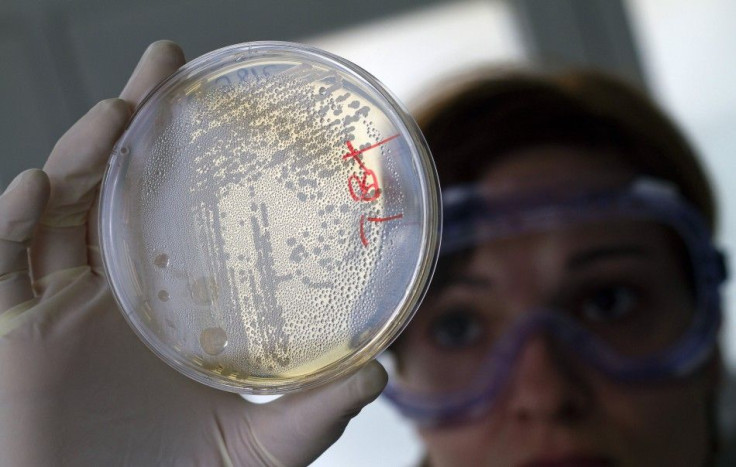Europe in the Grip of Drug-Resistant Superbugs

LONDON (Reuters) - Superbugs capable of evading even the most powerful antibiotics are increasing their grip in Europe with rates of drug resistance in one type of bacteria reaching 50 percent in the worst-hit countries, health officials said Thursday.
In a report on multi-drug resistant bacteria, or so-called superbugs, the European Center for Disease Prevention and Control (ECDC), which monitors disease across the European Union, said the need to combat resistance was critical.
We need to declare a war -- a war against these bacteria, the ECDC's director Marc Sprenger told Reuters in an interview about the report.
If we don't ... we'll get lots of infections and many vulnerable patients will become severely ill, and we don't have the antibiotics to treat them.
Sprenger said that across the region, rates of resistance to last-line antibiotics by a bacteria called Klebsiella pneumoniae had more than doubled to 15 percent by 2010 from around 7 percent five years ago.
What's even more worrying is that there's a great diversity among different countries in Europe -- and some countries have resistance of almost 50 percent, he said.
K. pneumoniae is a common cause of pneumonia, urinary tract, and bloodstream infections in hospital patients. The superbug form is resistant even to a class of medicines called carbapenems, the most powerful known antibiotics, which are usually reserved by doctors as a last line of defense.
The ECDC said several EU member states were now reporting that between 15 and up to 50 percent of K. pneumoniae from bloodstream infections were resistant to carbapenems.
To a large extent, antibiotic resistance is driven by the misuse and overuse of antibiotics, which encourages bacteria to develop new ways of overcoming them.
Experts say primary care doctors are partly to blame for prescribing antibiotics for patients who demand them unnecessarily, and hospitals are also guilty of overuse.
Fifty percent of all antibiotic use in hospitals can be inappropriate, the ECDC said, urging far more prudent use.
At the same time, there are few new antibiotic drugs on the horizon and experts are worried that only a few big drug firms, such as GlaxoSmithKline and AstraZeneca, still have strong antibiotic research and development programs.
There is little commercial incentive to invest in new drugs that may be held in reserve as last-line weapons.
Sprenger said the report found that the countries with the highest rates of multi-drug resistant infections, such as Greece, Cyprus, Italy, Hungary and Bulgaria, also tended to be the ones with the highest use of antibiotics.
In general what you see is that high resistance goes hand in hand with high consumption, he said.
SUPERBUG FROM ASIA
In a separate risk report on a gene known as New Delhi metallo-beta-lactamase, or NDM-1, that makes bacteria highly resistant to almost all drugs, the ECDC said 106 cases of infection involving the gene had been reported in 13 European countries by the end of March 2011.
This is an increase on the 77 cases found in the same 13 countries in late 2010, with the new cases in Britain, France, Germany, Sweden, the Netherlands and Slovenia.
The majority of the cases -- 68 out of the 106 -- were in Britain, the ECDC said, and 25 of those were in people who had travelled to or been hospitalized in India or Pakistan.
The NDM-1 gene is often found in bacteria like K. pneumoniae and E. coli.
British researchers reported in August 2010 that NDM-1 had been found in patients in South Asia and in Britain and they feared it could spread around the world, in part because of people traveling for treatment to other countries.
The genes in these bacteria are imported from across the world, so it's very important to screen all patients who come from abroad, especially from areas where there is high prevalence like India, Sprenger said.
(Editing by Ben Hirschler and Jodie Ginsberg)
© Copyright Thomson Reuters {{Year}}. All rights reserved.






















